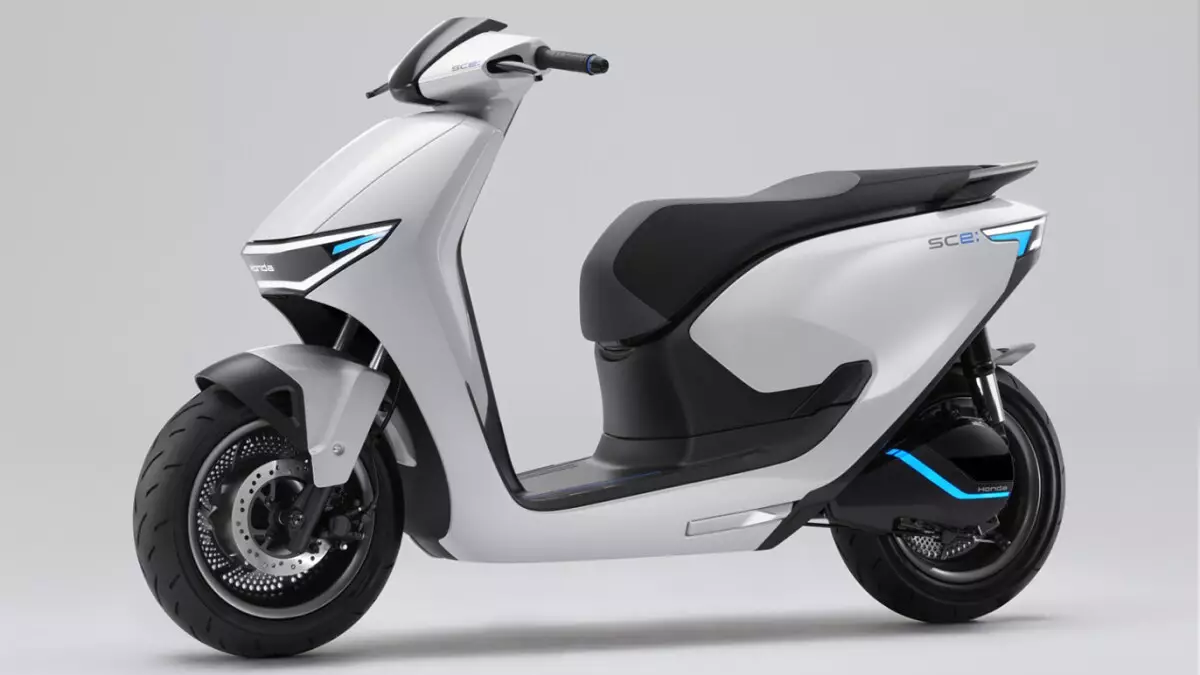Electric mobility is making unprecedented strides in the Indian two-wheeler market, with various manufacturers launching innovative electric scooters tailored to diverse customer needs. As environmental concerns rise and urban congestion intensifies, electric vehicles (EVs) are not just a trend; they represent a fundamental shift in how we think about transportation. 2025 is poised to be a pivotal year, especially with the Bharat Mobility Global Expo scheduled, where we can expect significant announcements from major players. This article reviews the anticipated electric scooters that could reshape the landscape of Indian commuting.
Honda has always held a prominent position in the Indian two-wheeler market, and its foray into the electric segment comes with high expectations. The Honda Activa EV is slated for a March 2025 release and is anticipated to bring some familiar features while integrating cutting-edge electric technology. Key highlights include two detachable Honda Mobile Power Packs, promising enhanced range flexibility for daily users.
Not only is Honda focusing on performance—with an expected range of over 100 km on a full charge—but they are also enhancing user experience. The Activa EV will likely be furnished with a fully digital touchscreen console and a keyless start-stop feature, elevating the traditional scooter interface to a modern standard. Positioned around the ₹1 lakh mark, it aims to compete directly against established electric models such as the Ola S1 and TVS iQube. The anticipation surrounding its global unveiling at the Bharat Mobility Global Expo hints that Honda is serious about making a significant impact in the EV market.
TVS, a brand known for its innovation, is set to launch two electric vehicles within the next six months, further contributing to the electric two-wheeler revolution. One of the vehicles is tailored for the business-to-business (B2B) market, hinting at TVS’s strategic diversification into delivery services and commercial fleets, a sector that has been rapidly moving towards electrification due to sustainability goals.
The second vehicle is even more exciting; reports suggest it could be an electric iteration of the popular TVS Jupiter scooter. Positioned as a mass-market offering, the Jupiter EV is expected to provide practical range capabilities of 70-80 km on a single charge, appealing directly to daily commuters. With a competitive pricing structure likely under the ₹1 lakh mark, it’s poised to attract a broader spectrum of riders, especially those new to electric mobility.
Suzuki’s Expectations from the Burgman EV
Suzuki’s entry into the electric space is equally compelling, with the anticipated Burgman EV making waves ahead of its release. Codenamed XF091, this scooter is expected to commence production in December 2024 and is eyeing an impressive annual sales target of 25,000 units. Unlike many competitors opting for detachable battery systems, Suzuki appears to focus on a fixed battery setup, suggesting a design that’s optimized for performance and reliability.
While details regarding pricing currently remain undisclosed, the expectations from the Burgman EV center around strong performance metrics and a practical approach to urban commuting. With Suzuki’s advanced engineering reputation, the Burgman EV might just carve a niche among urban riders looking for dependable and stylish electric scooters.
The electric two-wheeler segment in India stands at the brink of a remarkable transformation. With industry heavyweights like Honda, TVS, and Suzuki making strategic moves towards EVs, the upcoming months will be crucial in determining the acceptance and growth of electric scooters among Indian consumers. Initiatives toward sustainability, rising fuel costs, and the growing emphasis on urban mobility highlight the pressing need for cleaner and more efficient transportation solutions.
As we look forward to revolutionary product launches at events like the Bharat Mobility Global Expo 2025, the anticipation for these electric two-wheelers underscores the changing dynamics of personal transport. The future, undeniably, is electric, and it is reshaping every aspect of how we navigate our cities.


Leave a Reply